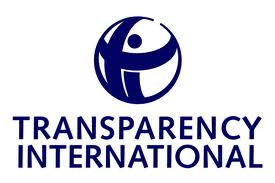RESEARCH SHOWS LOW BRIBERY RATES BRING BETTER ACCESS TO HEALTHCARE, EDUCATION AND WATER
Transparency International calls on the United Nations to adopt a governance goal and governance targets for its post 2015 development priorities because this will have a significant effect on reducing poverty and improving the lives of millions of poor people.
2015 and beyond: the governance solution for development, a new working paper published today by Transparency International, shows a strong correlation between the rate of bribery and several key development indicators. In countries where more than 60 per cent of the population pay bribes to access public services more women die in childbirth, fewer people have access to clean water and literacy rates among young people are higher.
In countries where there are high rates of bribery research shows that, irrespective of whether the country is rich or poor:
- Women are eight times more likely to die in childbirth
- People are five times less likely to have access to clean water and sanitation, and
- Three times more young people are illiterate
These findings reinforce the empirical evidence from other similar studies that corruption is a major obstacle to service delivery and thus to development goals.
In 2000 when the United Nations launched its ambitious Millennium Development Goals to eradicate poverty and improve health and education it set targets over a 15 year period in eight key areas. Several of these goals will be reached before the deadline but others, including the goal to reduce maternal mortality and improve literacy, will not.
This summer a United Nations High-Level Panel on the Post-2015 Development Agenda recommended a goal on good governance and in a public opinion poll, more than one million people put an “honest and responsive government” as one of their top three development priorities.
“In setting out new global commitments that look beyond 2015, all governments must establish a stand-alone goal for open, accountable and participatory governance with measurable, intermediate and progressive targets,” said Huguette Labelle, chair, Transparency International.
In addition, Transparency International is calling for governments to develop specific targets for areas that are critical to achieving a governance goal: citizen engagement, rule of law, and fiscal and procurement transparency. It is also necessary to integrate the governance principles of transparency, accountability, integrity and participation into all other proposed goals, each with measurable, intermediate and progressive targets.
“The evidence is real. A United Nations governance goal would deliver a clear development dividend. More pregnant women would survive childbirth, more children would learn to read and more people would have access to clean water,” said Labelle.
Today Transparency International is hosting a debate at the United Nations in collaboration with the United Nations Development Programme (UNDP) and the United Nations Office of Drugs and Crime (UNODC) to discuss the positive effects of governance on delivering the post-MDG development agenda. UNDP, the co-organizer of the event, today launched a new web-portal (www.anti-corruption.org) to contribute to the discourse on corruption in the global development agenda. For further details, visit www.transparency.org/news/events .

